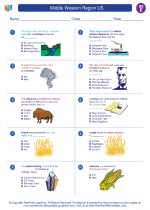Right to Life
The right to life is a fundamental human right that is widely recognized and protected by various international treaties, national constitutions, and laws. It encompasses the right to be free from arbitrary deprivation of life, the right to live in dignity, and the right to access the necessities of life such as food, water, and healthcare.
Historical Background
The concept of the right to life has deep historical roots and has been articulated in various philosophical, religious, and legal traditions. It has been enshrined in documents such as the Universal Declaration of Human Rights, the International Covenant on Civil and Political Rights, and many national constitutions.
Legal Protections
Many countries have laws and legal frameworks that protect the right to life. These protections typically include prohibitions on arbitrary deprivation of life, the use of capital punishment, and genocide. Additionally, these laws often require states to take proactive measures to safeguard and promote the right to life, particularly for vulnerable groups such as children, the elderly, and persons with disabilities.
Study Guide
- What is the right to life?
- What are some historical roots of the right to life?
- What international treaties protect the right to life?
- What are some examples of legal protections for the right to life in your country?
- How does the right to life intersect with other human rights?
- What are some current challenges to the right to life globally?
Understanding the right to life is essential for comprehending the broader framework of human rights and the responsibilities of states and individuals in upholding these rights. It also provides a foundation for engaging in discussions and actions related to issues such as healthcare access, poverty alleviation, and criminal justice reform.
.◂Social Studies Worksheets and Study Guides Fifth Grade. Middle Western Region US

 Worksheet/Answer key
Worksheet/Answer key
 Worksheet/Answer key
Worksheet/Answer key
 Worksheet/Answer key
Worksheet/Answer key
